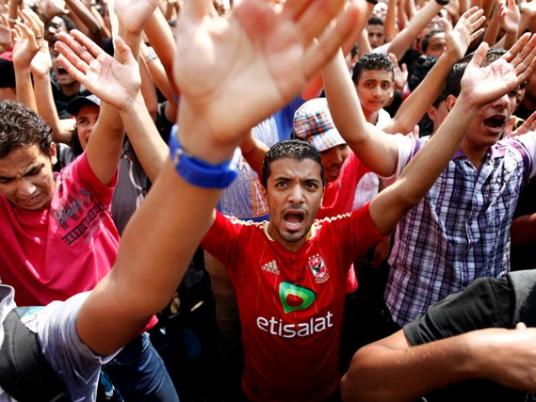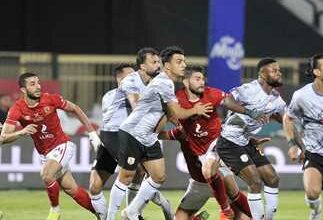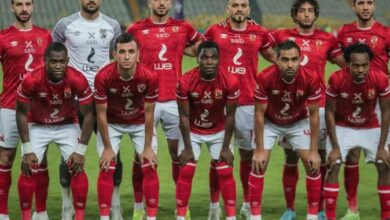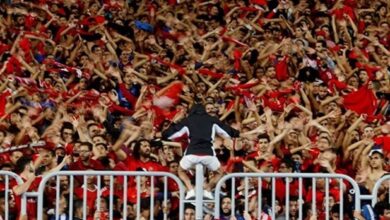
On Sunday 21 October, a number of Egyptian football league players and sports workers besieged the Baron Hotel in Heliopolis. Staying there were the Sunshine Stars, a Nigerian team due to play against Egypt’s premier club, Ahly, in the African Champions League semifinal.
The Egyptian league players were protesting Ahly’s decision to play the match with the Nigerian team, when Ahly have supported the Egyptian Football Association’s decision to postpone this year’s Premier League season indefinitely. Ahly fans, Ultras Ahlawy, ultimately intervened to help free the Nigerian players from the chaos and allow the game to take place.
The postponement of the Premier League is the second in less than two months, and follows the Port Said tragedy in February, when 74 football fans were killed after violence erupted following a game between Ahly and Masry teams, with no security intervention to stop the bloodshed. The case is still being heard in court.
Meanwhile, Ultras Ahlawy say they do not object to international matches, such as the game between Ahly and the Sunshine Stars, but stand their ground on rejecting the resumption of the season. They say it should only resume after the perpetrators of the Port Said massacre have been brought to justice.
The postponement has drawn attention to the two biggest issues affecting the current game: poor security arrangements in stadiums and the massive economic losses caused by the stoppage.
Players and workers in the field, including the EFA, have been calling for the season to resume, emphasizing the LE1.2 billion estimated losses. But the entity responsible for securing the matches, the Interior Ministry, has refused to give the green light for the resumption of the competition, citing security concerns. Egypt Independent investigates.
Security
Although the Interior Ministry had previously mentioned that matches would be played in stadiums belonging to the Armed Forces, it issued a brief statement Tuesday in which it said it had postponed the season because the atmosphere was still unsuitable for resuming the competition.
But the security problem is rooted in a deeper political feud between the police apparatus and football fans in Egypt, a feud that predates the 25 January revolution.
Even though the ministry declared at the beginning of its statement that it was capable of securing the league, it appears that it is not ready to clash again with hardcore fans, particularly Ultras Ahlawy, according to some experts.
Khaled Bayoumy, a former member of the Egypt Football Association (EFA) responsible for coordinating the security of the stadiums after the Port Said incident, says the resumption of the league “depends on a decision on the part of the Interior Ministry to carry out its role of securing stadiums.
“It should break the barriers of fear and be firm with spectators who refuse to abide by the rules, such as being searched before entering stadiums and refraining from attacking public establishments,” Bayoumy says.
He says hardcore fans have to get over their historic disagreements with the Interior Ministry, which started before the revolution.
Hardcore Ahly and Zamalek fans were among the first groups to join the revolution to protest security violations, including the arrest of some of their leaders by the now-dissolved State Security Investigation Services, which always feared their mobilization abilities could be used in anti-regime protests.
Even after the revolution, friction between Ultras Ahlawy and security forces continued, pushing some of their members to join protests condemning the military rule that followed the ouster of President Hosni Mubarak.
The Port Said stadium violence created a seemingly irreversible rift in the relationship between Ultras Ahlawy and security, with Ultras Ahlawy placing the blame on the Interior Ministry for its failure to intervene to stop the tragedy, particularly after investigations revealed security was aware of potential rioting but did not cancel the match.
An Ultras Ahlawy member who did not want to be identified says the state keeps putting off the season because it fears the outcome of the trials of suspects in the Port Said violence will be the same as in previous ones in which security officers were released.
A series of violent clashes following the 18-day uprising that toppled Mubarak left many dead, while the cases are pending in court in what has been described by human rights watchdogs as a staggering lack of accountability. In cases in which security officers were accused of killing protesters during and after the revolution, a series of acquittals cast doubts over the prospects of justice.
“Even if the suspects are indicted, it will be hard for us to change the way we support our team. The grandstands are our kingdom, and the Interior Ministry should understand that,” the Ultras Ahlawy member says. “We have never invaded the pitch, but we have the right to express our opinion and send messages to the competitors with our flares, chants and banners — activities that the Interior Ministry used to punish us for.”
Last month, the Sports Ministry drafted a law on sports rioting comprising 27 articles. That law imposes financial penalties on spectators who attempt to enter a stadium with flares and fireworks in their possession.
Spectators who use fireworks and intimidate other spectators or subject them to danger while inside the stadium would be sentenced to a minimum of three months and a maximum of seven months and be required to pay LE10,000.
The same penalties would apply to spectators who insult players or referees during the matches. However, the law has yet to be approved by President Mohamed Morsy, who currently holds legislative powers.
“If the state wants the league resumed, then it should do so without hesitation. The idea of having an exceptional law to handle rioting is not bad, but the question is, why has it not been approved until now? And, if approved, is it going to be enforced?” asks Bayoumy.
The Port Said incident was not the first time that fans stormed the playing field. The fans of the Mahalla Football Club did the same during a match with Ahly Club in December at the end of the first round of last year’s season.
The EFA then stipulated conditions for the new season to ensure safety in stadiums. It requested electronic gates at the entrances and exits, surveillance cameras inside and outside, barbed wire between the spectators and the playing field, and a buffer zone of 15 meters between the fans of each team.
Although many thought these conditions would make stadiums feel like military zones, former Prime Minister Kamal al-Ganzouri’s Cabinet decided to carry out the Interior Ministry’s conditions for resuming the season, and allocated funds for the development of 14 stadiums.
But Bayoumy says Ganzoury did not meet his promises, and that it was current Prime Minister Hesham Qandil’s Cabinet that spent those funds last August, allocating LE1 million to each stadium.
“Cairo Stadium was the only one that was developed, with the rest not yet finished,” Bayoumy says. “The EFA will have to use the stadiums of the Armed Forces that are already fitted to those conditions.”
EFA President Gamal Allam said the resumption of the league is in the hands of the government, not his association.
“We have already put down the schedule of the games, after the Armed Forces agreed to give us six stadiums,” he explains.
Ahly is playing against the Tunisian Esperance team in the African Champions League final early next month. It has asked the Interior Ministry to allow spectators to attend the game.
But it has not yet been determined where the game will be played.
Big business
he most popular game in the world — football — is also the most-loved sport in Egypt, and the chief source of income for Egyptian clubs.
Since football became a career for many Egyptian players, several businesses tied to the game have thrived from the sale of Ahly or Zamalek flags ahead of major matches, all the way to the sale of players in million-pound deals.
The halting of the football league’s season has had a negative impact on all stakeholders, starting from the EFA all the way to the clubs, advertising companies and satellite channels that benefit from the matches.
“Football pays for the sports activities in clubs,” says Medhat Shalaby, a sports commentator who works for Modern Sport satellite channel. “Sponsorship and broadcasting rights are what keep clubs going. There are more than 24 different games that depend on football for money.”
Amr Wahby, former marketing director at the EFA, says “every club has sponsors who fund it,” adding that when the league stops, the sponsors do not get their rights, and consequently do not give money to the clubs.
The suspension of the league has also had a negative impact on the other clubs that do not play in the Premier League.
Wahby says clubs that do not play in the Premier League generate revenues from their participation in the Egypt Cup competition, and that those clubs sell their players to the clubs that play in the Premier League — so, with the league suspended, everything becomes static.
Wahby also says the suspension of the league season has led the Egyptian national team to slip on the FIFA world football ranking to 40th position, lowering the country’s chances of playing friendly international matches against big teams and marketing the team’s matches.
The Egyptian national team won the Africa Cup of Nations three consecutive times in 2006, 2008 and 2010, making its way to ninth place in the FIFA rankings, but has since failed to qualify for the same cup finals twice in a row.
The EFA has also been hard hit by the season suspension. The association would have made LE104 million from the sale of matches to the state TV and satellite channels, but the suspension has caused it to only make LE38 million because the league only continued for 16 weeks. The losses are also exacerbated by the subsequent halting of the Egypt Cup.
The EFA, meanwhile, has started collecting accumulating debts owed by satellite channels as screening fees, which have totaled LE29 million, of which state TV alone is to pay LE23 million.
Wahby says these debts are guaranteed to be paid, adding that that it has been agreed with Al-Hayat satellite channel to pay LE4 million.
Satellite channels, and more specifically sports channels, have been adversely affected by the suspended season, with some of them going out of business altogether. Others have switched to talk shows, which have high ratings in post-revolution Egypt.
“The situation differs from one channel to the other. Some other channels, such as Zoom Sport and Melody Sport, have shut down, and others are not fulfilling their financial commitments toward their staff,” says Shalaby.
The suspension affects a wide swath of people, he says.
“A janitor at an advertising company would be affected by the suspension of the league because there are some companies that only do football advertising, so how do you think it’s going to be for those directly linked to football?” says Shalaby. “There are workers who get LE40 for every match played every week, and so the LE160 they made every month is no longer there.”
Translated by Dina Zafer
This piece was originally published in Egypt Independent's weekly print edition.




